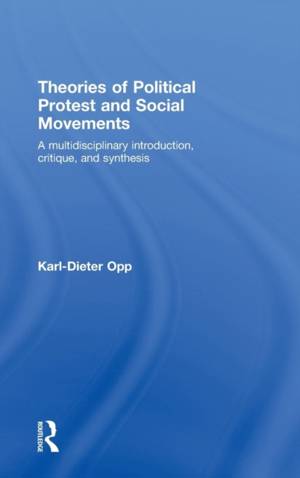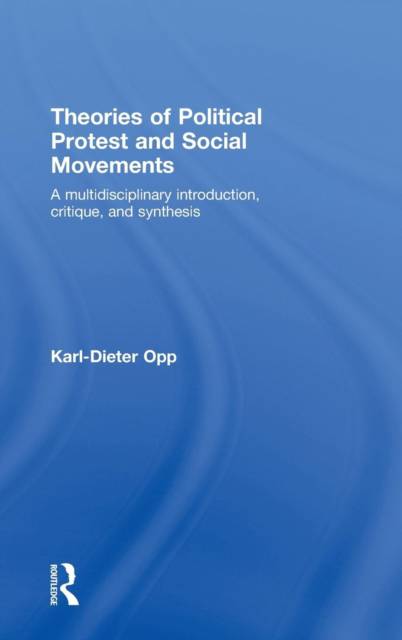
- Afhalen na 1 uur in een winkel met voorraad
- Gratis thuislevering in België vanaf € 30
- Ruim aanbod met 7 miljoen producten
- Afhalen na 1 uur in een winkel met voorraad
- Gratis thuislevering in België vanaf € 30
- Ruim aanbod met 7 miljoen producten
Theories of Political Protest and Social Movements
A Multidisciplinary Introduction, Critique, and Synthesis
Karl-Dieter OppOmschrijving
Political protest and social movements are ubiquitous phenomena. This book focuses on the current theoretical approaches that aim at explaining them: the theory of collective action, the resource mobilization perspective, political opportunity structure theory, the identity approach, the framing perspective, and the dynamics of contention approach. The book has three objectives: (1) Many basic concepts like political opportunities or identity are not clearly defined. It is further often a matter of interpretation what factors are supposed to affect which phenomena. The first aim is therefore to provide a detailed introduction to and a clear restatement of the theories. Only then is it possible to assess and improve them. (2) For each theory the major strengths and weaknesses are discussed, and various modifications and extensions are suggested. (3) Building on these analyses, it is shown how the theories can be integrated into a single theoretical paradigm: the structural-cognitive model.
Specificaties
Betrokkenen
- Auteur(s):
- Uitgeverij:
Inhoud
- Aantal bladzijden:
- 422
- Taal:
- Engels
Eigenschappen
- Productcode (EAN):
- 9780415483889
- Verschijningsdatum:
- 6/04/2009
- Uitvoering:
- Hardcover
- Formaat:
- Genaaid
- Afmetingen:
- 156 mm x 234 mm
- Gewicht:
- 766 g

Alleen bij Standaard Boekhandel
Beoordelingen
We publiceren alleen reviews die voldoen aan de voorwaarden voor reviews. Bekijk onze voorwaarden voor reviews.











